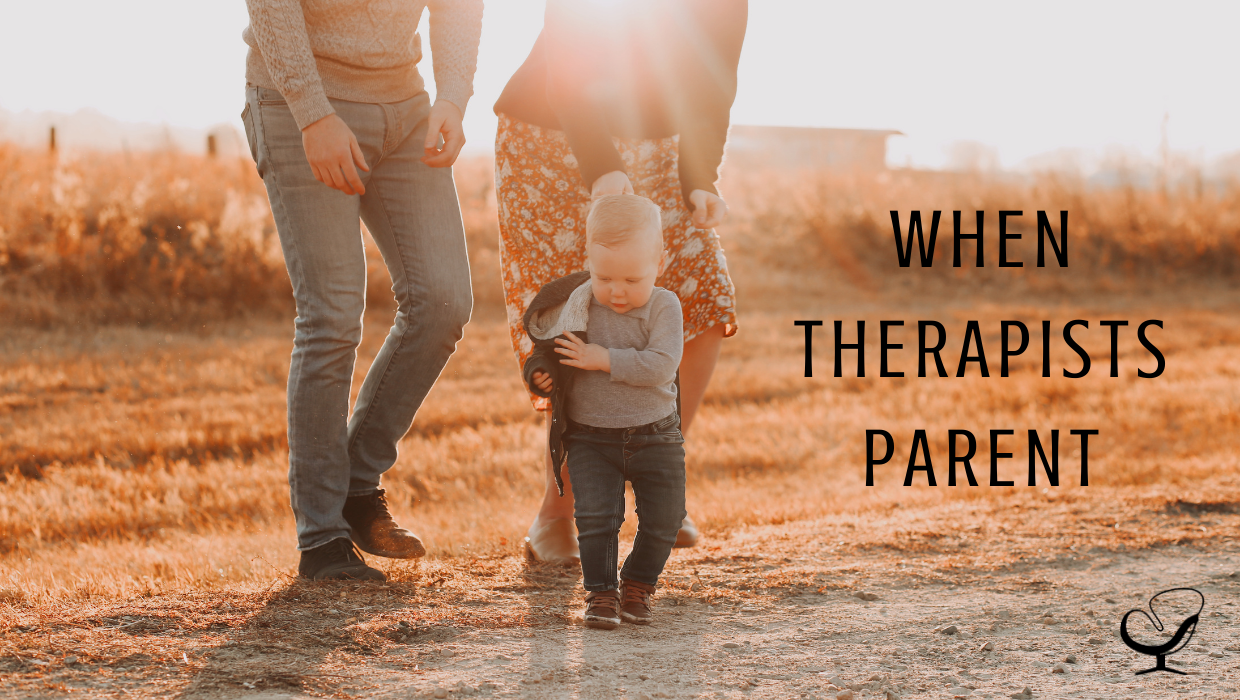I recently found out that a Google search returns no relevant pages regarding a therapist’s anxiety about parenting their own children. How could this be? I looked for it myself and found nothing either. Surely my therapist friend and I were not the only two therapists in the world having anxiety about our parenting – even though our job involves leading other parents through their own anxieties? I cannot believe this to be the case, and to that end, I wanted to offer reassurance – even if it is only to the single other therapist out there who sometimes doubts their parenting ability. Here’s a few things I’ve read – and learnt – about when therapists parent:
Parenting is Such a Tricky Deal Because the End Result Never Seems to be Certain
Maybe I will do a great job making sure my kids achieve the “American dream” of graduating college, getting a good job, finding a good partner and giving me grandchildren. Then their relationship falls apart and they’re back home. I think I might wonder if I had “failed” them in some way.
I wish there were a magic formula that ensured we as therapists, and all our clients could guarantee success for our children. My own 3 children range from 9-14, and I hope and pray that I’m doing the right thing by them. I often wonder if they’ll grow up to think I was so busy helping others that I didn’t see, hear, and really know them. This is not a “how-to” blog per se. For a helpful how-to for therapist anxiety between sessions, definitely check out this post!
These are simply thoughts from a fellow therapist who is trying to find her way be the “good enough” parent Winnicott advocated.
Cautionary Tales of When Therapists Parent
Alice Miller’s “Drama of the Gifted Child” really caused me to reevaluate my parenting ideas. It is a book often recommended to therapists who deal with trauma clients. I recently learned the German title is “Prisoners of Childhood” which makes much more sense if you read it. Even before my friend asked me whether I have parenting anxiety, I had recently come across the fact there is an autobiography from the son of Alice Miller. He suggests that this therapist herself had difficulty implementing the things she promoted in her life’s work. While I haven’t read her son’s book, and I can’t speak to his veracity, it was sobering to discover, perhaps even with immense knowledge of how to help others’ suffering, we might be blind to what unhealthy dynamics may be present in our own family relationships.
I have clients whose parents worked in some type of psychology or child development field, and yet their parent seems to have NOT been able to achieve the “good enough” standard. So, what could be key factors in doing our best to ensure that our children don’t horrify their own therapist with tales of a therapist parent who deeply wounded them?
Lessons I Have Learned So Far
-
Do Your Own Inner Work
It was hugely relieving to me to read in Brene Brown’s “Daring Greatly” that one of the best indicators for “success” as a parent is to consistently work on being our best self, trying to model to our children an imperfect path of ongoing personal growth.
She encourages us to BE the adult we want our own children to turn into.
-
Always Ask, Don’t Assume
My middle child taught me a valuable lesson about this. A few years ago, I thought I witnessed him blatantly pushing his younger sister off the piano bench. Before I completely verbally freaked out on him for intentional violence, something prompted me to ask him what happened. Then he told me he had tripped on the rug while walking towards her and ending up pushing into her while trying to regain balance. I had looked up in time to see what looked like an intentional push but missed the very important context of the moments before. I would never have known this had I assumed ill intent and not asked the question.
-
Don’t Be Afraid to Apologize
See the above story. Sometimes we get it wrong as parents. What better example to our children than to let them know all humans make mistakes and it’s okay to ask forgiveness and seek repair when our errors have damaged a relationship? I’ve never known this to diminish my child’s respect for me as a parent.
-
Spend Time With Your Child Without an Agenda
This is hard for me. I get it. There is so much we want to teach and convey to our children. We really want them to better than we did. I know it’s such a cliché, but the old adage, “No one cares how much you know until they know how much you care” is absolutely true for our children!
My wise counseling supervisor recommended at least 10 minutes/day of individual attention per child that involved the child choosing how the time was spent, and NO parenting being done in those 10 minutes.
As a busy working mom, the 10-minute idea felt imminently doable for me. There is a lot of good parenting advice out there that just seems to flatten me with the weight of demand before I can even THINK about how to implement it. I have imperfectly done the 10 minutes over the years, but I continue to love and promote the idea.
Hope Brown
Hope Brown is a Licensed Professional Counselor in the state of Texas. She is the owner of a group private practice, New Hope New Liberty Counseling, PLLC. Her passion is to help clients recover from traumatic experiences and build healthy relationships with themselves and others. Hope is a co-host on The Liberty HopeCast, a mental health podcast that encourages women to address multiple aspects of their overall health. You can find out more about her practice and gain access to the podcast at her website.


